
Cluster & Eno is a collaborative album by the German electronic music group Cluster and English ambient musician Brian Eno. The style of this album is a collection of gentle melodies: a mixture of Eno’s ambient sensibilities and Cluster's avant-garde style.
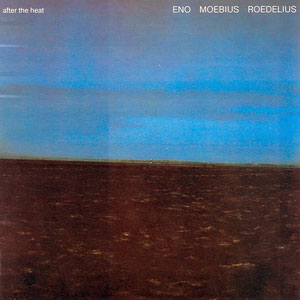
After the Heat is a 1978 album by Brian Eno, Dieter Moebius and Hans-Joachim Roedelius, credited to "Eno Moebius Roedelius". The album represents the second collaboration by the trio, the first being 1977's Cluster & Eno. As with the previous album, After the Heat was created in collaboration with the influential "krautrock" producer Conny Plank.
Time Regained could refer to:
Kluster is a German experimental musical group whose work often resembles later industrial music.
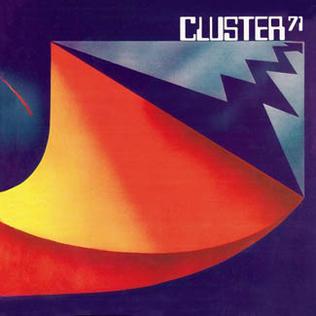
Cluster is the eponymous debut studio album by German electronic music outfit Cluster. It was recorded in 1971 and released the same year by record label Philips. It is also the only album on which Conrad Plank is credited as a member.

Apropos Cluster is a full-length studio album by Dieter Moebius and Hans-Joachim Roedelius also known as German electronic music outfit Cluster. It was also their first album after an eight-year-long hiatus.
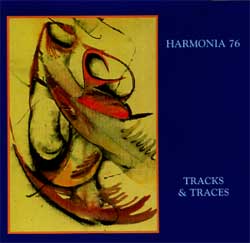
Tracks and Traces is the one and only album credited to Harmonia '76, but it is generally regarded as the third album by the highly influential Krautrock/Kosmische Musik group Harmonia. Harmonia was formed by the addition of Neu! guitarist Michael Rother to Cluster, the duo of Hans-Joachim Roedelius and Dieter Moebius. British ambient musician Brian Eno joined the group at Harmonia's studio in Forst, Germany for the September 1976 recording sessions which resulted in this album.

Durch die Wüste is the first full-length solo album by German keyboardist Hans-Joachim Roedelius, best known for his work with Cluster, Harmonia, and Aquarello. The title is German for "Through the Desert."
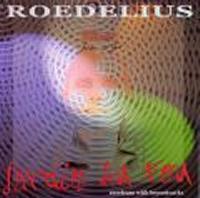
Jardin Au Fou is the second solo album by German keyboardist Hans-Joachim Roedelius, best known for his work with Cluster. The title is French for "Madman's Garden".

Selbstportrait is the third solo album by German keyboardist Hans-Joachim Roedelius, best known for his work with Cluster, Harmonia, and Aquarello. The title is German for "Self Portrait", a title which clearly reflects the gentle, introspective nature of this album of ambient or new-age music. The original Sky Records release was subtitled Teil 1 Sanfte Musik, German for "Part 1, Soft Music."
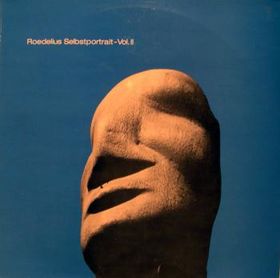
Selbstportrait – Vol. II is the fourth solo album by German keyboardist Hans-Joachim Roedelius, best known for his work with Cluster, Harmonia and Aquarello. The title is German for "Self Portrait - Vol. II", a title which clearly reflects the gentle, introspective nature of this album of ambient or new-age music. It is the second of seven albums in Roedelius' Selbsportrait series of recordings. The album is subtitled "Freundliche Musik", German for "Friendly Music".
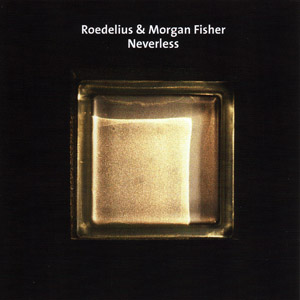
Neverless is a collaboration between ambient composers and musicians Hans-Joachim Roedelius and Morgan Fisher. Basic tracks were recorded at Roedelius Studio in Austria and The Handmade Studio in Tokyo. Tracks were overdubbed and mixed by Morgan Fisher at The Handmade Studio between July, 2002 and August, 2003. All tracks were composed or improvised by Roedelius and Fisher with the exceptions of "However" by Roedelius, Fisher, and Felix Jay, and "Inparticular" by Roedelius, Fisher, and Fabio Capanni.

Lustwandel is the sixth solo album by German keyboardist Hans-Joachim Roedelius, best known for his work with Cluster, Harmonia, and Aquarello. All the pieces on the album were composed by Roedelius with the sole exception of "Wilkommen", which was composed by Roedelius and Will Roper. It was released by Sky Records in 1981 and has been reissued on CD by Sky Records in Germany in 1992 and by the Gyroscope label in the United States in 1996.

Offene Türen is the eighth solo album by German keyboardist Hans-Joachim Roedelius, best known for his work with Cluster, Harmonia, and Aquarello. The music of Offene Türen is more avant-garde than other Roedelius solo albums of the 1970s and 1980s. It can best be compared to Cluster's Curiosum which was released by Sky Records that same year.

Wenn Der Südwind Weht is the seventh solo album by German keyboardist Hans-Joachim Roedelius, best known for his work with Cluster, Harmonia, and Aquarello. All the pieces on the album were composed by Roedelius. It was released by Sky Records in 1981 and has been reissued on CD by Sky Records in Germany by the Gyroscope label in the United States in 1996. The Bureau-B label reissued Wenn Der Südwind Weht in the European Union on both CD and 180 gram vinyl LP in 2010.

Flieg' Vogel fliege is the ninth solo album by keyboardist Hans-Joachim Roedelius, best known for his work with Cluster, Harmonia, and Aquarello. According to Roedelius biographer Stephen Iliffe this album is also titled Selbstportrait IV, but that name does not appear on the album sleeve or label. Flieg' Vogel fliege was recorded at Roedelius' home studio and completed at Erpelstudio, Vienna, Austria. Flieg' Vogel fliege was released by Sky Records on vinyl in 1982. Flieg' Vogel fliege was the final album Roedelius recorded for Sky Records.

Auf leisen Sohlen is a compilation by Sky Records of works by German keyboardist Hans-Joachim Roedelius, best known for his work with Cluster, Harmonia, and Aquarello. It is subtitled Das Beste von H. J. Roedelius and includes tracks from seven of the eight albums he recorded for Sky Records during that period. All music included in this collection was composed by Hans-Joachim Roedelius.
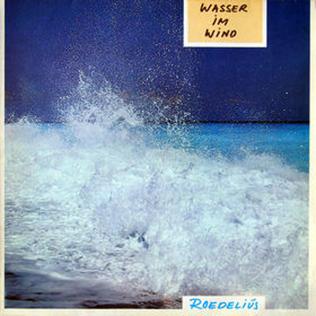
Wasser im Wind is the tenth solo album by keyboardist Hans-Joachim Roedelius, best known for his work with Cluster, Harmonia, and Aquarello.





















